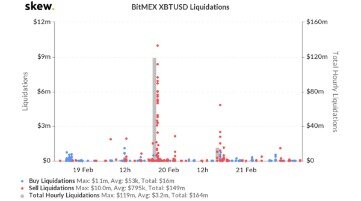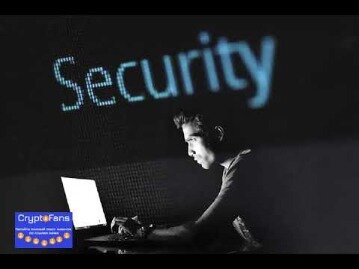Content
This case is very similar to the two attacks that happened on the bZx exchange within the same week back in February. Again, this was the result of an unchecked arbitrage opportunity that allowed the hacker to make off with around $1 million in ETH – and there was absolutely nothing anyone could do about it.
While there is no solution that is 100% effective against the BTC and other cryptocurrencies scams and fraud, one layman approach should be to avoid trading websites, exchanges and platforms which appear suspicious and are not approved by regulatory authorities. South Korean police raid, at the country’s largest cryptocurrency exchange, Bithumb on September 2 as part of an investigation of fraud allegedly committed by the organization’s main shareholder. Anton Bukov, a team member of the bZx group shared a thread on Twitter to admit that the firm was hit by another attack.
I do not hold a position in any crypto asset or cryptocurrency or blockchain company. The two hacks forced the team to shut down and rebuild the protocol. Since then, other projects saw vulnerabilities exploited as well, but none had multiple hacks occur within a short span. Two separate attacks in February cost the protocol just under $1 million.
Are Code Audits Overrated?
CVCscan includevirtual currencies with a centralized issuer or those issued according to a decentralized mechanism. A DEX that enables users to exchange virtual currencies, including CVCs, and which operates as a business could therefore be construed as a money transmitter under federal law. Sushiswap and other DEXs facilitate trades in virtual currencies that are ‘convertible virtual currencies’ (‘CVCs’) under guidance issued by the Financial Crimes Enforcement Network (‘FinCEN’). This suggests that these platforms could implicate federal money-transmission laws. Finally, transactions in SUSHI would be subject to the Exchange Act’s antifraud statutes, Section 10 and Rule 10b-5, which prohibit fraud and manipulation in securities transactions. Part Aof this post offered a high-level overview of DeFi by focusing on one particular DeFi project, Sushiswap. In this Part B, the post will explore legal and compliance considerations that are made particularly salient by the unique characteristics of DeFi projects.

He also said the hacking was initiated due to the fault in the line of code for a smart contract. The hacking was successful after the hackers initiated the iToken transactions to siphon ETH. This time, the hackers were 8 times more potent than the previous attack on the margin and leverage-based trading and lending platform. The hackers leveraged a duplication vulnerability that gave them access to siphon USDC, USDT, ETH, and LINK, with a combined worth of over $8 million. Finally, with regards to mismanagement from DeFi founders, the best way for traders to insulate themselves from falling victim to exit scams and fraud is to perform rigorous due diligence prior to parting with any crypto. Checking a project’s whitepaper, team, community activity, exchange listings, number of security audits, and backing from institutional investors will give you a much clearer idea of whether or not to make an investment. The research we’ve conducted at Hacken shows there have been at least 11 high-profile security breaches including the recent Harvest Finance hack, since January 1st.
Trading resumed after a fix that corrected the balances and duplications. The bug allowed the hacker to mint 219,200 LINK tokens (valued at $2.6 million); 4,503 ETH ($1.65 million); 1,756,351 USDT ($1.76 million); 1,412,048 USDC ($1.4 million) and 667,989 DAI (worth $681,000). As of this writing, $776 million worth of crypto is held in Sushi’s smart contracts, down 18% from the previous day, according tosushiswap.vision.Meanwhile, Uniswap’s total value locked has spiked 70% day-over-day to $971 million, according toDeFi Pulse. Billing itself a community-driven DeFi experiment, SushiSwap aspired to drain liquidity and users from the dominant, VC-backed AMM Uniswap. It did this by forking Uniswap’s code, instituting a governance token and offering a generous subsidy for liquidity providers that migrated over.
Who Won #cryptotwitter?
CoinDesk’s Omkar Godbole reports that the probability of bitcoin reaching a new record high above $20,000 by the end of December is roughly 5%. It seems that the bZx team caught on to the security breach later when the protocol’s total value locked started dipping rapidly. They then halted all lending activities on the protocol, which gave them time to conduct a security audit and fix the i-token contract code. The user was among the first in the crypto community to discover an exploit in a BRZX pool that held over $20M in user funds. He proceeded to notify bZx of the bug that was capable of duplicating i-tokens, but their security team didn’t react in time. According to Kyle J Kistner, Chief Visionary Officer at bZx, the incident didn’t affect borrowing and trading on the platform.
According to J Kistner, the bZx platform is capable of absorbing “black swan events” events that would otherwise decimate lender deposits.
Defi Platform Bzx Sees New $8m Hack From One Misplaced Line Of Code
The hackers were able to initiate a transfer function using the same form & to address of the main function. Immediately after that, they used an InternalTransferFrom function with a single argument, allowing the lines to code faulty. When researchers delved deeper to find out how the hackers were able to infiltrate the DeFi protocol again, the report showed that there was a vulnerability in the “transferfrom0 protocol”, which allowed the successful transfer of ERC20 between protocols. The bZx protocol suffered its first attack this year, as a hacker siphoned $1 million from the system. Security audits from respected cybersecurity firms should be routinely carried out to reduce the threat of direct protocol vulnerabilities. This dramatic rise in value held on the market coupled with the fact that all DeFi platforms are largely run autonomously has made it a vulnerable, lucrative target for malicious hackers.
Chef Nomi, the anonymous creator of the protocol, sparked huge controversy when they decided to dump his/her founder’s tokens on the market in true Charlie Lee-style. The move caused the price of SUSHI to crash 75% in minutes and was immediately labeled by the DeFi community as an exit scam. Not long after, the head chef decided to return the $14 million worth of ETH they had made from the sell-off back to the project’s treasury. The seemingly prevalent hacking incidents on bZx prompted Aave Protocol Founder Stani Kulechov to comment on the security status of DeFi platforms. Back in June, top DeFi protocol Balancer was the target of an attack that used deflationary tokens.
- Then, almost by magic, the company claimed the $8M was returned.
- This gave them a chance to fully return the money down the line and allowed the business to continue.
- Contact us to discuss our PiPA tool or take a look at our guidance on inclusive play area design.
- DEX operators should therefore ensure that their platforms match all of the details described in the guidance.
Gholam Hossein Mozaffari, CEO of the Kish Free Zone Organization, has queried the nation’s central bank aboutusing cryptocurrencies mined on Kish Island to beat hyperinflationand international sanctions. “If the central bank allows this, it possible to import cars with digital currency for these three free zones, and the car problem can be solved,” Mozaffari said, according to ArzDigital. In recent months, Iran has loosened regulations to permit crypto mining under certain circumstances. In a late breaking twist, a spokesperson said bZx was able to track down the attacker using his or her on-chain activity and that the funds were returned as soon as that person was exposed. Although law making authorities continue to trace and prosecute cybercriminal committing crypto scams and fraud, the fraudulent activity continues to exist and grow.
The bZX team quickly fixed the security exploit via a software upgrade. bZx is exactly the kind of company that the U.S. has been working hard to keep U.S. investors away from. I cannot fathom how many other companies like bZx are out there on major exchanges creating major losses for their investment community by poor due diligence, insufficient cyber security and questionable corporate activity and directors.
Auditing smart contracts is considered a crucial step before the protocol’s launch. Unaudited protocols are considered less safe, so much so that Yearn Finance’s creator says he purposefully dampened excitement about his project by withholding the fact that the protocol was audited. It was a conceptual vulnerability that really an auditor should have caught, but we shouldn’t have been using it. We had an understanding that Kyber wasn’t optimal, but we kind of stubbornly refused to centralize the oracle. We didn’t have Chainlink, which we could just plug in at the time, so the only other option was to centralize the oracle.
bZx’s algorithm saw profits at the end of the trader’s code, and without hesitation, gave the green light without a human staffer to check if the profits were being made at their own expense. Bzx noticed the security breach some hours later and immediately halted minting and burning of iTokens.
So we looked at that transaction and it took us about two seconds to be like ‘Ok, somebody got hacked.’ This doesn’t look right at all. There wasn’t really a pause button designed on this thing, but we did hack together a solution by disabling the oracle whitelist. Decentralized finance platform bZX has frequently been in the spotlight this year, only not for the right reasons. Most DeFi platforms popular today, including bZX, began their journey around 2018, at the tail-end of the initial coin offering boom. In 2019, DeFi started gaining traction, though it was still a somewhat ignored sector of the industry.
During this time Paul quickly realised there was a severe lack of provision in outdoor play spaces for children with special needs. This led to the creation of Inclusive Play in 2006 with the vision of designing play products that could be integrated into any play space for children of all abilities. Since then, Inclusive Play has developed a range of products which have been exported across the world. Leisure and Inclusive Play in 2010, expanding the business across the UK and developing Inclusive Play’s International strategy. The recommendations of PiPA have been adopted to become the UK benchmark.

With these partnerships and on-going research we will continue to champion inclusive design. Contact us to discuss our PiPA tool or take a look at our guidance on inclusive play area design. Not only is it important for their physical health and development, but by enabling children, young people and adults to interact together, a play area can truly unite a community.
Blockchain Bites: Big Bitcoin Bets, Sushiswap Drops, Bzx Attacked
Third, Why will you not state which jurisdiction the investigation is occurring in nor out the hacker? This to me has the faint air of “inside job” and when you couple that with the questionable behavior of “bounty hunter” Mark Thalen, more questions than answers exist. Individuals responsible for managing a DEX that is deemed an FCM may be found criminally liable to the extent they have caused such DEX to not comply with the US Bank Secrecy Act.

The collective amount stolen in US dollars at the time of each cyberattack, excluding recovered funds, now exceeds $78.3 million. The Daily Chain is a news platform and educational hub founded in January 2019. We are dedicated to providing unique and informative daily content across all facets of the blockchain and cryptocurrency industry whether it be news, opinion pieces, technical analysis, reviews, interviews, podcasts and more.
As the CEO of CYBR International, we do a LOT of ethical hacking and vulnerability assessments. Never in my 20 years of experience have I or an employee ever tried to extort money for passing along cyber security analysis and reporting.
It appears $8.1 million was initially lost in a new hacking attack, the third this year, caused yet again by a flawed code in its smart contracts. (bzx.network) is a crypto project which states that it is “A Protocol For Tokenized Margin Trading and Lending”. As of October 7, 2020, the market cap is shown to be $15,429,400 per Coingecko. The token trades at just under $.11 at this time of writing but traded as high as $1.74 about 6 weeks ago. What causes a token to lose roughly 94% of its value in six weeks’ time?










